The price of Bitcoin, the world’s most famous cryptocurrency has been making headlines all around the globe in the last few months with its rise and fall. It has ignited conversation across the country, with a glint appearing in the eyes of the converted, filled with that ancient light — the promise of wealth without painful toil.
While selling cryptocurrencies for far more than they had been bought for, or even better, selling those that had been created from one’s own computer, have offered one opportunity for riches, some avenues have even been cutting out the middleman. Expedia and Microsoft accept some cryptocurrencies, especially Bitcoin, for their products and services, while in Kosovo at least three car dealers accept Bitcoin, as do some computer shops and other small businesses.
K2.0 investigated the phenomenon to try and work out how a computer loaded with six graphics cards can be turned into a car.
Spreading the ‘good news’ of cryptocurrency
Veton Brahimi is a daytrader, but instead of trading in stocks and shares he works with various cryptocurrencies. He is also one of the owners of the Satoshi Cafe Bar in Prishtina, where a wide range of cryptocurrencies are accepted as legal tender.
Brahimi compares the current climate regarding cryptocurrency with the early days of the internet. “If in that time you asked someone whether he or she has email, they would have laughed at you, and asked what you were talking about,” he says.
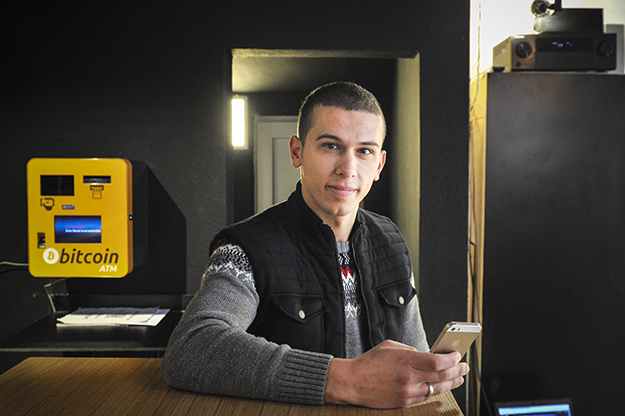
Veton Brahimi believes that the current age of cryptocurrency offers a wealth of opportunities to young people in Kosovo. Photo: Atdhe Mulla / K2.0.
Brahimi believes that young millenials are lucky to be living in this time, where people can become aware of the phenomenon, which is open to everyone to participate in, no matter where they live. Moreover, he feels it is his mission to spread the good news among everyone who is interested.
His methods of trading in cryptocurrency, he says, are quite diverse, and he does not “trade everything during the day, but there are different strategies, some diversified for the long term and some that you can buy and sell during the same day.”
While doing this, he says that he sees “possibilities for making profit every day,” so, he heartily adds, “why not tell you as well? We have as a main goal to create awareness [about this technology] to all, and if they happen to become millionaires — even better.”
At Satoshi, which Brahimi set up with his business partner Milot Mehmeti, advice is dispensed, and assistance is offered for beginners making their first investment, to help people understand what they are actually doing. “So far there are maybe more than a thousand people we have talked to face to face,” Brahimi says.
He adds that if someone knows English, even better, because everything you need to know is online, but also he claims that it is important to “ask someone in real life, because after all, this is money we are dealing with.”
The pair can also assist in using the cryptocurrency ATM in the cafe, although theirs is not the first to arrive in Prishtina. That honor belongs to ALBVISION Ltd., who on June 17 brought a machine to Pejton that now supports the transaction of more than 10 cryptocurrencies.
Unlike regular ATMs, cryptocurrency ATMs work similarly to an exchange service, with vendors accepting cash for cryptocurrencies — and cryptocurrencies for cash.
With ALBVISION, users are able to buy up to 2,000 euros worth of cryptocurrencies through the machine. Users can also sell their reserves of cryptocurrencies, with cash withdrawals of up to 2,000 euros available immediately, with the cash provided by ALBVISION.
Kosovo’s third cryptocurrency ATM arrived in September, and is owned by consulting company BitSapphire. One of the business’s owners, Valmir Hazeri, claims it is a more advanced model than the others. Hazeri says that it offers a 24/7 service for all users and the limit for buying or selling cryptocurrencies is 1,000 euros.
So cryptocurrencies are now easy to invest in from Kosovo, but what exactly are you putting your money into? To explore this, it is perhaps best to elaborate on the story of the world’s most famous cryptocurrency, Bitcoin.
‘Bitcoin’ — the math and the theory behind the goldrush
On Nov. 2, 2008, on a little visited webforum of cryptographers (those who study the encryption of communication), a link appeared to a paper called “Bitcoin: A Peer-to-Peer Electronic Cash System” — the author’s name was Satoshi Nakamoto.
What it proposed was not something unheard of. Creating an internet currency has been an aim since the early days of the internet. Yet efforts had failed again and again because there was something missing. Any internet currency would need a component that not only made it independent from third party control, but also ensured against hacking and other manipulations, such as using the same coin over and over — CTRL+C, CTRL+V.
In the paper, Nakamoto (an alias, and while his true identity remains a mystery, many point to Craig Wright) proposed a simple yet genius solution called blockchain. Blockchain technology would ensure that every transaction using the currency would be saved in a public database, not unlike an accessible spreadsheet in Google Docs.
That database would be spread among people who dedicate computational power to the system, and no new information would be added until all users would ‘agree’ (a process done automatically by their hardware) to legitimize it.
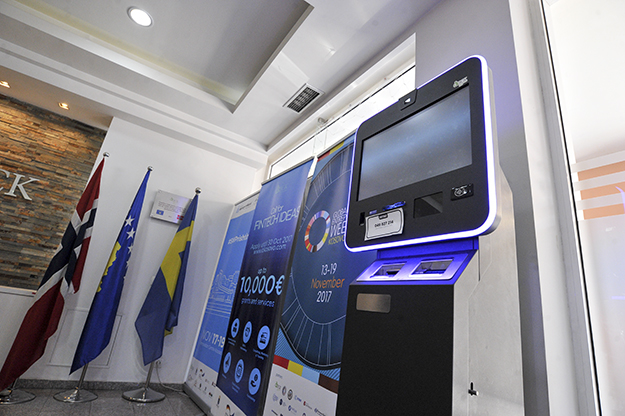
Valmir Hazeri’s cryptocurrency ATM, where cryptocurrencies are bought and sold. Photo: Atdhe Mulla / K2.0.
This process of verifying transactions and processing information is called cryptocoin mining. The data is processed through solving deliberately difficult puzzles — the user with the strongest computational power would mine a block, which in turn would be rewarded with Bitcoins. Each time a new block is added to this public database, new Bitcoins are released into the market.
Since Bitcoin is limited to 21 million coins, the amount of coins released by each block mined has gone from 50 when it began in 2001, halving every four years until the final blocks will eventually reward users with 0.00000168 coins or 42 Satoshis, the cent of Bitcoin.
This innovation, in which every user has access to, approves and helps to build the mechanisms that record and create the currency is the basis of all cryptocurrencies. Users are incentivised to maintain the continuously growing chain of records.
Mining near Germia in Prishtina to Northern Mitrovica
As well as investments in cryptocurrencies, mining for cryptocurrency rewards has seen a huge increase in recent years, especially in Kosovo. To mine coins, at the beginning all you needed was your computer, but since more and more people are mining, the mathematical or algorithmic puzzles have grown more and more complex and require much more computational power.
Gent Shabani, who lives in the outskirts of Prishtina close to Germia park, is currently investing in mining cryptocurrency Ethereum, together with a friend of his that lives in America. In his home he has a mining rig — a dedicated computer system equipped with six Graphics Processing Units which he uses to mine coins.
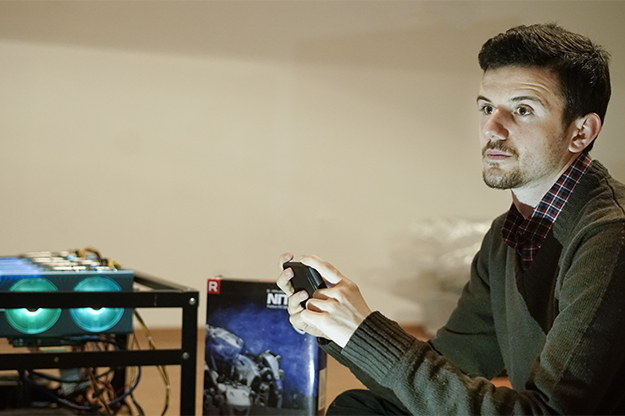
Gent Shabani has been mining for around a year now, with five rigs split between his house in Kosovo and his friend’s place in the U.S.. Photo: Valmir Mehmetaj / K2.0.
“I’ve been into mining for around a year now. We have another four rigs in the U.S., and this one is the fifth,” explains Shabani, whose rig has managed to release enough heat to keep the whole third floor of his house warm.
While mining was initially the preserve of those interested in developing the system, the widespread trading of cryptocurrencies for cash has seen many turn mining into a source of income.
Shabani says that a rig holding five or six of the latest graphics cards can still turn a tidy profit, though not the figures that were being created previously. The difficulty arises in balancing the costs of electricity against the cryptocurrency rewards for the computational power generated, which are getting lower and lower.
“With a rig like this, which has around 180 megahash power, the difficulty in mining was way lower and you could make around 2,500-3,000 dollars a month,” Shabani explains. “Now the difficulty has risen, and profits are lowering for everyone, but it is still a profitable business.”
Rigs use a lot of energy, it is estimated that mining for cryptocurrencies currently uses more energy than 159 individual countries worldwide, including Ireland and every African country. If it keeps up at this rate, it is estimated that by February 2020, it will consume more than the rest of the world’s electricity use combined.
Shabani spends around 35-40 euros a month on electricity for his rig. But on the other side of the country in northern Mitrovica, for the proud owner of another rig for mining Ethereum, Jovan Arsic, the electricity bill is only around 25-30 euros.
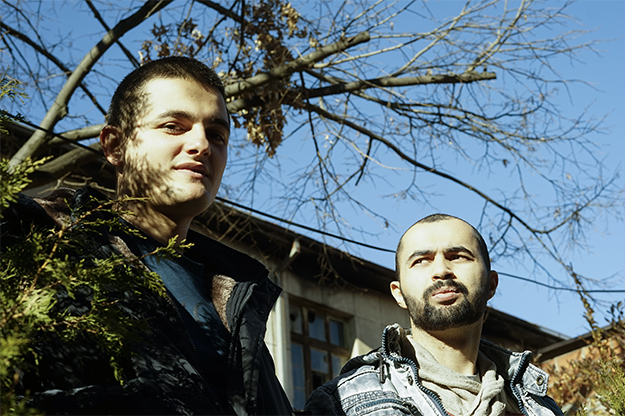
Mining for cryptocurrency has also spread to Kosovo’s north, in the traditional mining city of Mitrovica. Photo: Valmir Mehmetaj / K2.0.
“Electricity here for one rig with six graphics cards costs around 30 euros. This month it was 20 euros because a lot of times the electricity went off, and when it comes back [the rig] can not be turned on again, because the energy is weak,” Arsic explains. “With one rig you can earn around 400 euros, but it depends how much it works. It must run for all 30 days, with the electricity not being shut down and the rig not experiencing any other problems.”
He says that cryptocurrency fever is spreading in northern Mitrovica as well, and he knows at least five or six others who are into mining, and have one or more rigs.
In many parts of the world, people come together and create so called mining farms, where the power of thousands of rigs are collected. Arsic, and other people who spoke to K2.0, had all heard that there are mining farms in Prishtina, but none had seen one.
Arsic believes that in the north of Mitrovica, where electricity bills are often the cause of dispute, the desire to create a farm is there but the resources are not. “They would all like to go big, but it is not possible,” Arsic says. “To open a farm you would need at least 100,000 euros.”
Freedom of money
While for some of those engaging in cryptocurrencies, profit margins are seemingly everything, others buy more wholeheartedly into the philosophy behind the movement. Cryptocurrency enthusiasts claim that the system’s real advantage is the lack of a third party (such as a bank) guaranteeing the transactions, removing any fees, conditions or bills this process might incur, “giving power to the people.”
“We have to take the responsibility of banks, if we want to show them that they are not needed anymore,” Brahimi says.
It is a doctrine perhaps best expressed by American broadcaster Max Keiser, who presents a financial program broadcast on Russian state media channel RT. At a 2015 conference on the cryptocurrency era in Rotterdam titled ‘Reinvent Money,’ Keiser broke into a rant on the necessity of creating a digital currency in order to break away from the control of banks and governments.
“Wall street is fraud. America is fraud. The world is fraud. Banks are fraud. Central banks are fraud. We live in an era of fraud. It’s all based on fraud and they get a percentage of that fraud — that’s the business model. To suggest that there is any moral or ethical aspect, in anything that is going on now is to be completely naive about the fact that we live in an era dominated by financial terrorists; terrorists, terrorists! Jihadis of banking — they’re here to kill you and themselves! They believe in an ideology, not the Qur’an but Adam Smith [a Scottish economist who is considered the father of modern day capitalism], who they completely misread and interpret as something to justify their blowing themselves up!”
Bitcoin and other cryptocurrencies claim they offer this independence. “It is so decentralized that if you are the owner of some piece of Bitcoin, there is nothing between you and the Bitcoin [as an owned and registered trademark] itself,” Brahimi explains.
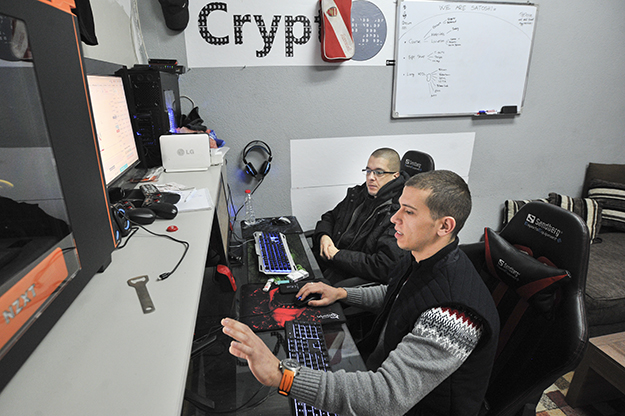
As well as profiting from its usage, Veton Brahimi is a true believer in the good that can come out of cryptocurrencies. Photo: Atdhe Mulla / K2.0.
While now this technology is used by only a couple of million people, Brahimi asks what would happen if all 7 billion of us started using it. “This is an unstoppable technology, made for the poor, because the rich do not need it,” he states. “And the poor will reap the benefits of it, it is all a matter of education, a process that needs the support of everyone, and I believe everyone has an obligation toward it.”
Valmir Hazeri of BitSapphire believes that cryptocurrencies are only the beginning. While he does not invest in Bitcoin because of the wildly fluctuating prices, he sees unlimited potential in blockchain technology, which he has worked with since 2014. Part of his consulting company’s work offers help with ‘ICO’ or Initial Coin Offering, which uses blockchain technology to raise digital currency for startup companies, ensuring that both participants and investors receive their share of the dividends.
“It is a new method, where you can sell shares digitally. Before it was IPO [Initial Public Offering, a stock market launch], where a company would go public and be monetized with methods of documentation and brokers and like this,” Hazeri explains. “Now this has been digitized. It is the blockchain technology beneath all of these cryptocurrencies. In fact it is blockchain technology making all this existing diversity possible,” he adds.
It is working at the zeitgeist of technological industries that Hazeri believes can provide a brighter future for Kosovo. “It is not that important to focus on buying coins, but rather to focus on developing these kind of things,” he says. “We could promote Kosovo in this respect, as a country that produces technology, rather than saying we are ‘The Young Europeans.’ I mean, who cares? Show creativity, provide solutions, and solve world problems,” he adds, with the determination of a man who believes that has the answer to Kosovo’s economic ailments.
It is through technology rather than politics that Hazeri sees solutions. “Someone said to me that the new patriotism is to employ people in Kosovo, not to make war or scream on Facebook.”
The other side of the (Bit)Coin
When cryptocurrency ATMs arrived in Kosovo, the Kosovo Central Bank issued a warning that cryptocurrencies are not locally regulated, and if a citizen loses money, there is no one to guarantee reimbursement. Indeed, Brahimi, Hazeri, and others involved in cryptocurrency investment companies all advise not to invest money that you cannot afford to lose.
In an email to K2.0, Central Bank spokesman Besnik Kada sent a link to the official Kosovo Central Bank communication release, which issued the same warning, as well as linking to a European Banking Authority (EBA) warning, available in English and Albanian. The EBA warning contains a brief explanation as to what cryptocurrencies are, and then starts to number the risks of investing in such coins.
Even Kosovo’s foreign minister, Behgjet Pacolli, has talked about the dangers of cryptocurrency. While promoting his book, “15 Principles of Success According to Behgjet Pacolli,” he held a speech in front of students, telling them that Bitcoin is a currency that can not last, and will crumble as soon as people start trading them in for cash.
“Do not covet Bitcoin,” Pacolli warned. “The moment that they get out of that system and the cash invested in it starts to be collected, the pyramid will start to fall.”
Ominous words, but not the first since the emergence of cryptocurrency. JP Morgan Chase Chairman and CEO Jamie Dimon once called Bitcoin “a fraud,” causing a stir and a fall in its price. Later, during an International Institute of Finance conference, he again said that people that invest in cryptocurrencies are going to pay for their stupidity one day. “I don’t personally understand the value of something that has no actual value,” he added.
Dimon is right that Bitcoin has no value in itself. Its price grows on the basis of supply and demand — the more people that want to buy, the higher the price gets, and the less people want to buy and the more they sell, the price falls.
According to a U.S. based financial website, howmuch.net, 95 percent of all Bitcoins are owned by 4 percent of addresses, while according to Aaron Brown, head of financial markets research at investment firm AQR Capital Management, around 40 percent of the cryptocurrency is owned by 1,000 people. He said that it is possible for large holders of Bitcoin to potentially orchestrate price changes together.
One of the most plausible ways for the bubble to burst would be if people started withdrawing cash suddenly, and in huge amounts. With a 1,600 percent spike at the end of last year, that scenario seems plausible.
However, many Bitcoin believers have said that it is expected for banks, governments, and other institutions and individuals who want control and power to raise fears, in order to undermine Bitcoin and lower its value.
Independent research analyst Ronnie Moas, is convinced that Bitcoin will become “the most valuable currency in the world,” with a price tag of around 300,000 dollars. He backed his claim up with an ‘I told you so’ as well. “Bitcoin is already up 500 percent since I recommended it in the beginning of July, and I’m looking for another 500 percent move from here,” he stated in December.
Valmir Hazeri believes that is good for the people, and especially the young, in Kosovo to get involved “because it is a growing trend, and they can develop expertise in the stock exchange, in value fluctuations, in buying and selling.”
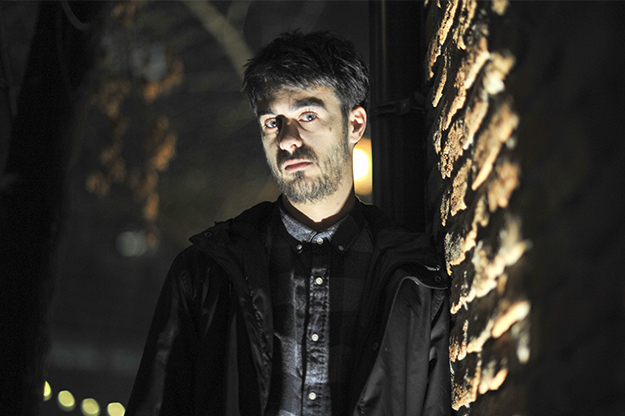
Valmir Hazeri believes that some form of cryptocurrency will inevitably form a global trading platform. Photo: Atdhe Mulla / K2.0.
He has the faith that even if it is not Bitcoin, a cryptocurrency will eventually become a global trading platform. “Even if Bitcoin fails as Bitcoin, many other things will continue,” he predicts. “Cryptocurrency will continue growing. Maybe it’s not Bitcoin that is the ‘Big Thing,’ but maybe it is the thing before the Big Thing.”
Hazeri promises that if the youth of Kosovo manages to connect to Bitcoin, and especially blockchain technology, “they will be connected to a global trade, where there will be no limits for work.” Moreover, he believes that our government should invest in educating new generations on how to solve issues with blockchain technology.
Shabani, the young Prishtina miner, knows that he at least does not want to miss out any more regarding investment in these coins. “Who knows today what will happen a year into the future?” he asks. “Maybe we will say, ‘Hey imagine, when Bitcoin got to 10,000 [dollar value] we thought that it was too much and it could not get any higher.’ I know for myself that I said this when Bitcoin reached 1,000, and now it has reached [more than] 10,000.”
Shabani knows his plans for investment in the future. “If Bitcoin fell to 1,000, I know that I would be ready maybe to invest and buy 20 or 30 pieces.”K
Feature image: Atdhe Mulla / K2.o.







